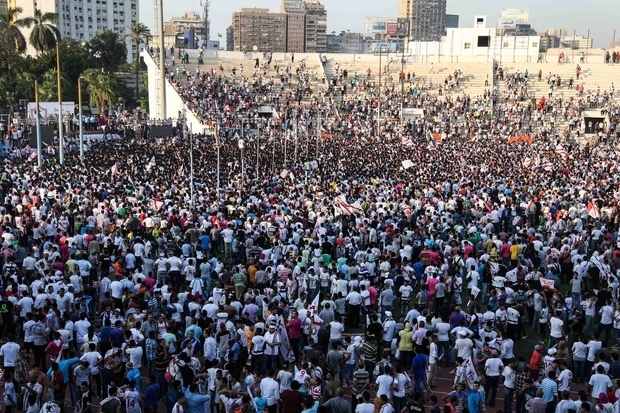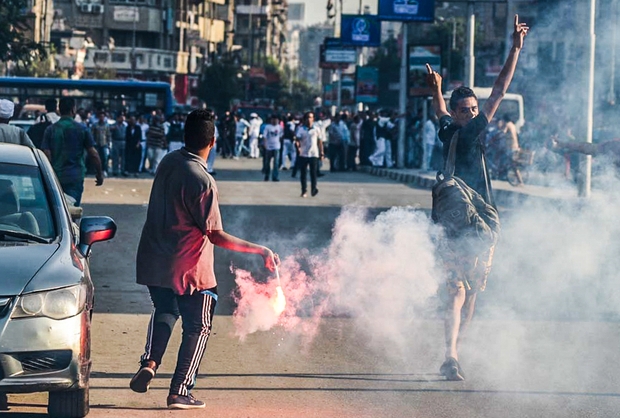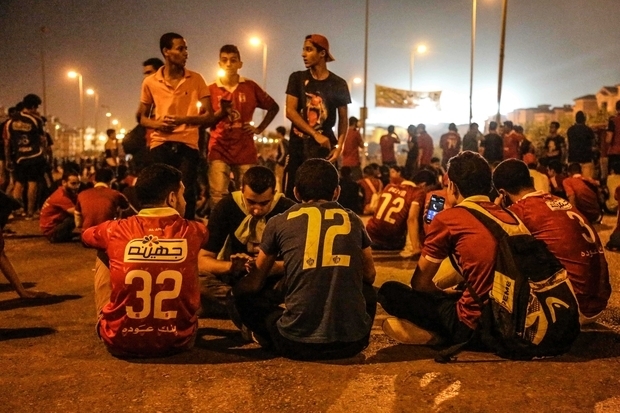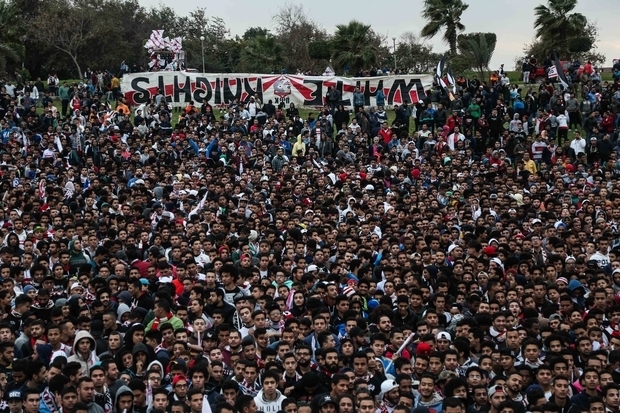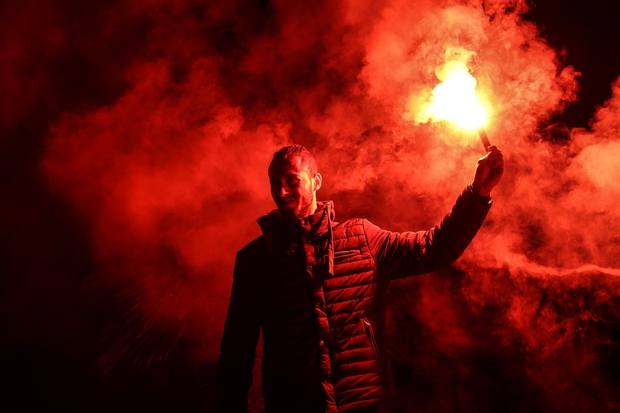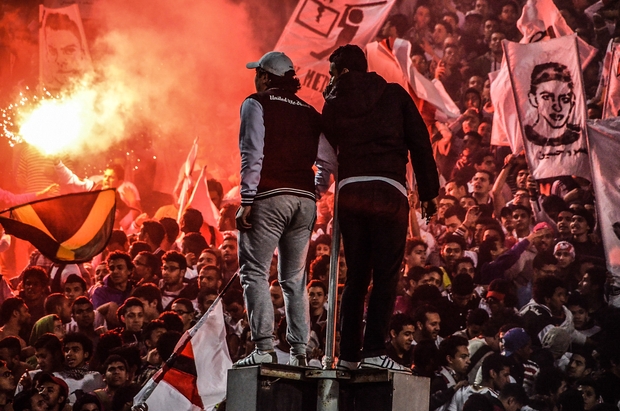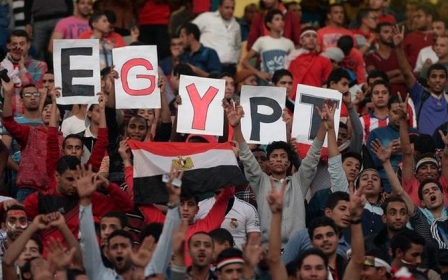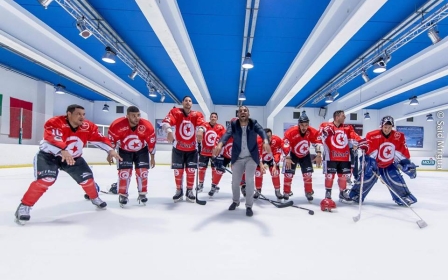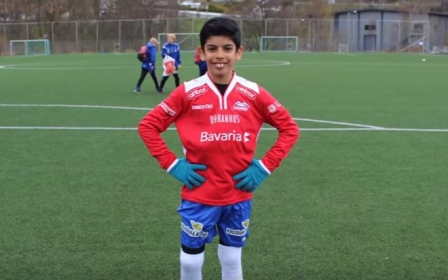Egypt returns to African Cup, but will their fans ever return to the stadiums?
CAIRO - Egypt has made it through to the African Cup of Nations for the first time in seven years, but the country’s passionate fans are still banned from entering football stadiums after years of post-revolutionary tension with authorities.
The country last won the cup in 2010, and has won it seven times overall, making it Africa’s most successful footballing country by a fair margin.
“I’m pretty optimistic; the players are coming of age, they have the experience, they’ve become more mature,” said Mohamed Seif, the founder of Egyptian football website King Fut. “They’ve passed the transition period after Aboutrika." Mohamed Aboutrika was a legendary Egyptian player who had his assets seized by authorities in May 2015 after being accused of supporting the Muslim Brotherhood.
"I’m not saying we’re going to win, but I’m saying that the progress is good,” Seif added. “We have a very long way to go to its recovery.”
Egypt will face off against Ghana, Mali and Uganda in its group.
“There have been ups and downs, we will never reach the point we reached in 2010. 2006 to 2010 was the best period for Egyptian football in its history,” Seif said.
He was referring to Egypt’s unprecedented treble in 2006, 2008, and 2010.
Fady Ashraf, editor of football magazine Fil Goal, explained that after 2011, the attention to football decreased naturally to focus on more important matters related to the revolution. The quick succession of events, from the Port Said massacre in February 2012, then the ousting of former president Mohamed Morsi in June 2013, and the delays in the lifting of the ban on fans attending matches all impeded progress.
Blood-stained bleachers
On 1 February 2012, 72 Ahly fans were killed in Port Said after a match between football clubs al-Ahly and el-Masry. An unidentified mob wearing black t-shirts went about killing the fans on Ahly’s stands.
Egypt’s diehard football fans, known as ultras, along with activists and rights groups, strongly condemned the Ministry of Interior for failing to secure the match.
The tragedy caused friction between Ahly’s administration and the Supreme Council of Armed Forces (SCAF), who were then ruling the country.
The Port Said massacre led to the long-term ban of fans from attending domestic football matches.
Three years later, the director of Zamalek FC, Mortada Mansour, convinced the Egyptian courts to rule the fan groups illegal and in turn ban the ultras in mid-May 2015. After this, anyone carrying proof that he was part of the ultras could face jail.
When Egyptians talk about the spirit of football, they cannot leave out the ultras; and when they talk about the ultras, they cannot leave out 25 January.
From their signature chants, songs and even morning rituals during sit-ins in Tahrir Square – doing morning aerobics for example – the ultras embraced the revolution in almost every way possible, which caused security forces to fume in fury.
“We were the shield of the revolution,” one member of the die-hard Ahly fan club, UA07, told Dalia Abdel Hamid, an anthropologist who heads the gender programme at the Egyptian Initiative for Personal Rights (EIPR).
During the research she conducted for her masters degree in anthropology at the American University in Cairo, many of the ultras members told Abdel Hamid that they were more present in violent clashes during the revolution than ordinary marches and protests because as they say “the Ultras individual is an individual moved by the battle.”
Abdel Hamid explained to Middle East Eye that this hatred each party has for the other, even before the famous 28 of January clashes, entitled “The Friday of Anger,” could be attributed to two main reasons. “The first reason is the state’s fear of organisation; it’s a strong organisation, even if it’s pleasure oriented, even if it can be conceived as non-political, but still, it’s a very strong organisation. It’s the only other successful organisation other than the Muslim brotherhood,” she said.
The second reason is about control; “it’s a fight to prove who has control over the stadium,” Abdel Hamid termed it. She explained that the ultras wanted to cheer for their club, dance and enjoy their space as they wished, whereas security wanted a “disciplined spectator,” - an obedient audience who would just come to the stadium, watch the game and leave.
Although the story of the ultras versus the state dates back to 2008, according to Abdel Hamid’s thesis, their role in the 25 January uprising was a turning point.
Another massacre
On 8 February 2015, right before a match that was supposed to bring fans back to the stands, 22 Zamalek fans were murdered in Cairo’s Defaa’ el-Gawy stadium due to suffocation. This happened as police allegedly attempted to disperse large crowds who were making their way into a Cairo stadium to attend the game.
The Ministry of Interior said the clashes occurred after members of Zamalek’s Ultras White Knights (UWK) tried to attend the game without buying tickets.
So the crowd ban continued, and still continues until this day, but authorities have been lifting it occasionally to test the waters. It still remains unknown whether it is going to be totally lifted or not. All sectors related to youth and sports have been vocal about the lifting of the ban, except for the Ministry of Interior.
“At the end of the day, what makes football is the fans,” Seif told Middle East Eye. He explained that other than helping to raise the players’ spirits through cheers and chants, a big part of the sport’s budget originally came from ticket money. Now that there are no tickets to be bought, funding is depleted.
“Everyone is calling for ‘the return of the crowds’ - even talk shows that are considered to be pro-governmental have called for it. Even [Egyptian President Abdel-Fattah] el-Sisi talked about it at the Egyptian Youth Forum. Everyone is nostalgic about cheering from the stands,” Ashraf told Middle East Eye.
During the youth forum’s first season in Sharm el-Sheikh on 27 October, Sisi called on the fans’ families to take their kids to the stadiums so that the experience returns to its civilised form. “The return of the fans require a societal participation besides the state to solve the issue,” he added.
“After Port Said, the enthusiasm dropped, then slowly picked up until the Defa’ ElGawy [deaths] in 2015 and it dropped again. Now it’s at its peak; we haven’t reached these high levels of enthusiasm since 2011,” Ashraf said.
Ashraf also pointed out that before the revolution social media was not as strong as it is now. Getting banned from their stands did not mean the fans’ spirits would be banned too; they moved their enthusiasm from the stadium to social media platforms.
'The pace is picking up'
Football fans told Middle East Eye that the pleasure they get from watching the games is a relief from the turmoil the country is going through. “Politics has been really depressing and boring lately, so football became our go-to when we want to escape from reality,” Mohamed, an Ahly supporter in his early thirties told MEE.
“There was a time when enthusiasm was running low between football fans, but now it has returned like it was before,” he added. Alaa, 26, a Zamalek supporter who was seated near Mohamed, agreed, adding that after the Port Said massacre everyone was too depressed to watch the games.
Before 2010, people used to say "Don’t watch football while the Aqsa is held hostage," said Ashraf. But today, in the face of society’s adversity and economic woes, football is a way to forget. “Football is still the go-to bubble when [people] want to enjoy their peace of mind… So these things don’t have any impact. We even have a match on 13 November. We haven’t heard of someone calling against it for the sake of the 11 November protests,” Ashraf added.
While expectations are high for Egypt’s performance in the Africa Cup, there is still a long way to go for Egyptian football to return to the golden era before 2011. As long as there are no more tragedies to take them by surprise, Ashraf says he is hopeful.
“Things are at a peak now," he said. "The football union administration is very close to the one we had before 2011. The pace is picking up but we’re still far from where we were in 2010.”
New MEE newsletter: Jerusalem Dispatch
Sign up to get the latest insights and analysis on Israel-Palestine, alongside Turkey Unpacked and other MEE newsletters
Middle East Eye delivers independent and unrivalled coverage and analysis of the Middle East, North Africa and beyond. To learn more about republishing this content and the associated fees, please fill out this form. More about MEE can be found here.


